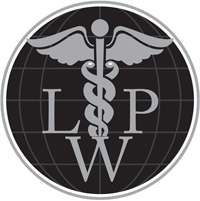Researchers from University College London in the UK are developing a simple blood test to help predict the likelihood of a woman developing breast cancer. They publish their research in the open access journal Genome Medicine.
The University College London (UCL) team first identified an epigenetic signature that can be detected in the blood of women who have an inherited genetic mutation that predisposes them to breast cancer.
The mutation occurs in the BRCA1 gene and is believed to cause at least 10% of breast cancers. The causes behind the other 90% of cancers are unknown, however. Increasingly, research is shifting from the idea that genetic mutations are the sole contributors to the development of the disease.
Instead, scientists are now investigating how the arrangement and expression of our geness – epigenetics – affects how they function. The subject of the UCL research is a much-studied epigenetic mechanism known as “DNA methylation.”
The researchers analyzed blood samples collected from two large UK cohorts of women – the MRC National Survey of Health and Development and the UK Collaborative Trial of Ovarian Cancer Screening. The samples were taken several years before any of the woman had developed cancer.
Comparing the DNA methylation signatures in the blood of the women, the researchers found that the women who developed both hereditary and non-hereditary breast cancer shared the same signature.
As Prof. Martin Widschwendter, study lead author and Head of University College London’s Department of Women’s Cancer, explains:
“We identified an epigenetic signature in women with a mutated BRCA1 gene that was linked to increased cancer risk and lower survival rates. Surprisingly, we found the same signature in large cohorts of women without the BRCA1 mutation and it was able to predict breast cancer risk several years before diagnosis.”
Prof. Widschwendter and colleagues believe that the epigenetic signature may be responsible for silencing genes in immune cells. If these genes are silenced, then the immune system may be less able to prevent the development of breast cancer.
However, more research is needed to confirm whether the signature is an indicator of breast cancer risk or whether it is involved in the progression of the disease.
“The data is encouraging,” Prof. Widschwendter concludes, “since it shows the potential of a blood-based epigenetic test to identify breast cancer risk in women without known predisposing genetic mutations.”
Earlier this week, Medical News Today reported on a study published in JAMA that found the addition oftomosynthesis, a 3D imaging technique, to digital mammography improves breast cancer detection rates.
Also, a recent study published in PLOS Medicine explored using skin moles as a predictor of breast cancer. The researchers behind that study had observed that moles become bigger or darker during pregnancy, and so wondered if there was an association between elevated hormone levels and moles that might also influence breast cancer development.
Written byDavid McNamee
http://www.medicalnewstoday.com/articles/278778.php


